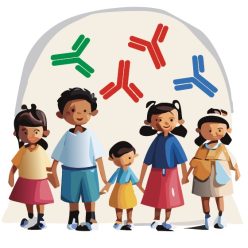Like so many orphan, or neglected, cancers, therapies for sarcomas have, with a few exceptions, not improved much the last decades. Surgery, radiation and chemotherapy are the main treatment arms, but chemotherapy appears to have reached a limit due to high toxicities, and has not significantly improved this century. A notable exception is the treatment of GIST with drugs targeting the c-kit pathway, which is a prime example of successful repurposing of a drug. Imatinib was developed to target the fusion protein bcr-abl which causes leukemia, but turned out to also be very effective against the mutated kit receptor in GIST (gastrointestinal stromal tumours). We are trying to identify other such drugs, developed and perhaps approved for another cancer type, but having activity against sarcomas.
Candidate sarcoma drugs are identified by two main projects: Determining cancer mechanisms that are mutated in sarcomas, or drug screening of drug libraries on sarcoma cells in culture. In the first project we identify mutated mechanisms that have been exploited in therapies in other cancers. However, although we may find the same mutations that predict response in another cancer, this may not be the case in sarcomas. We therefore have to find one or more cell lines with this type of mutation, and test their sensitivity to the drug. If it works it is promising, but we still do not know if it will work in a patient, as there are so many differences between a cell culture and a body. Some of these issues may be accounted for by investigating the activity in a human sarcoma grown in mice, but still this is just a first stepping-stone for clinical trials, there are many differences between such an artificial experimental system and real tumours in patients.
To determine the efficacy in patients, a clinical trial has to be organised and funded.
